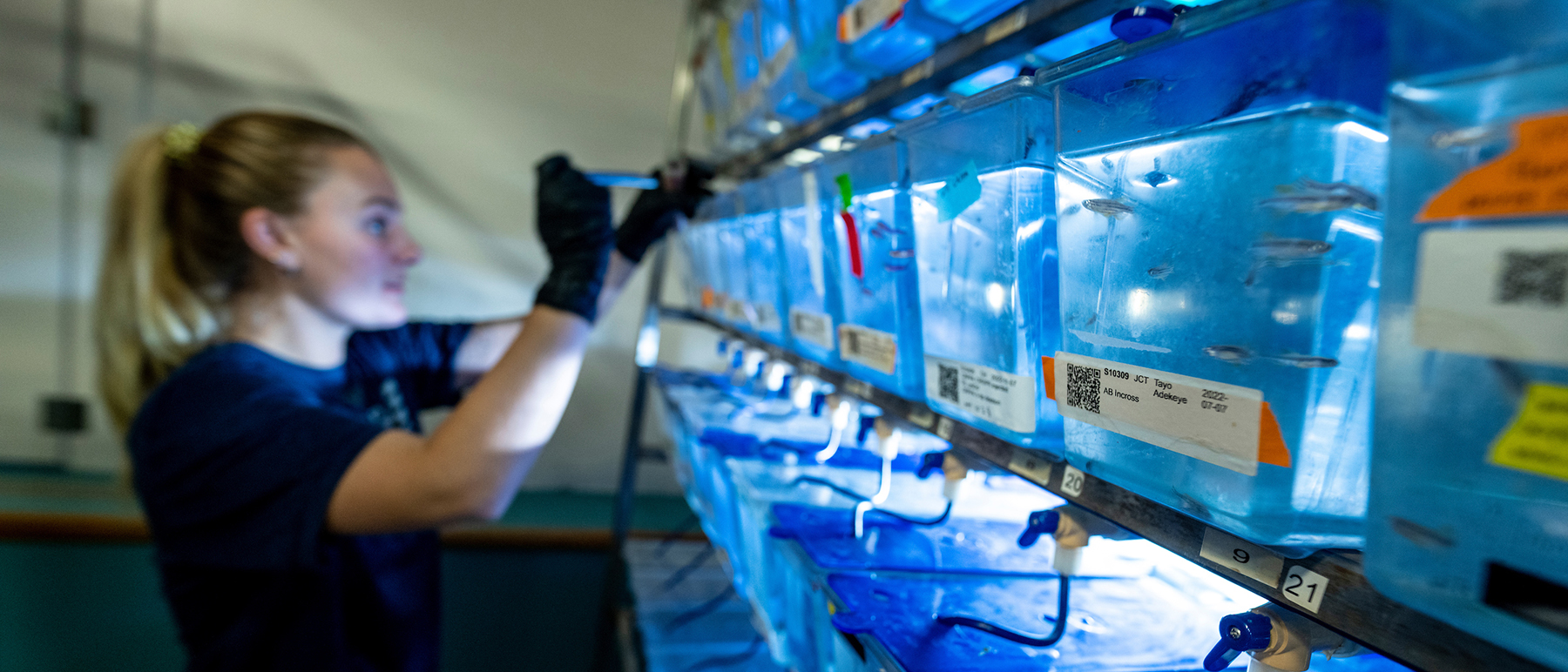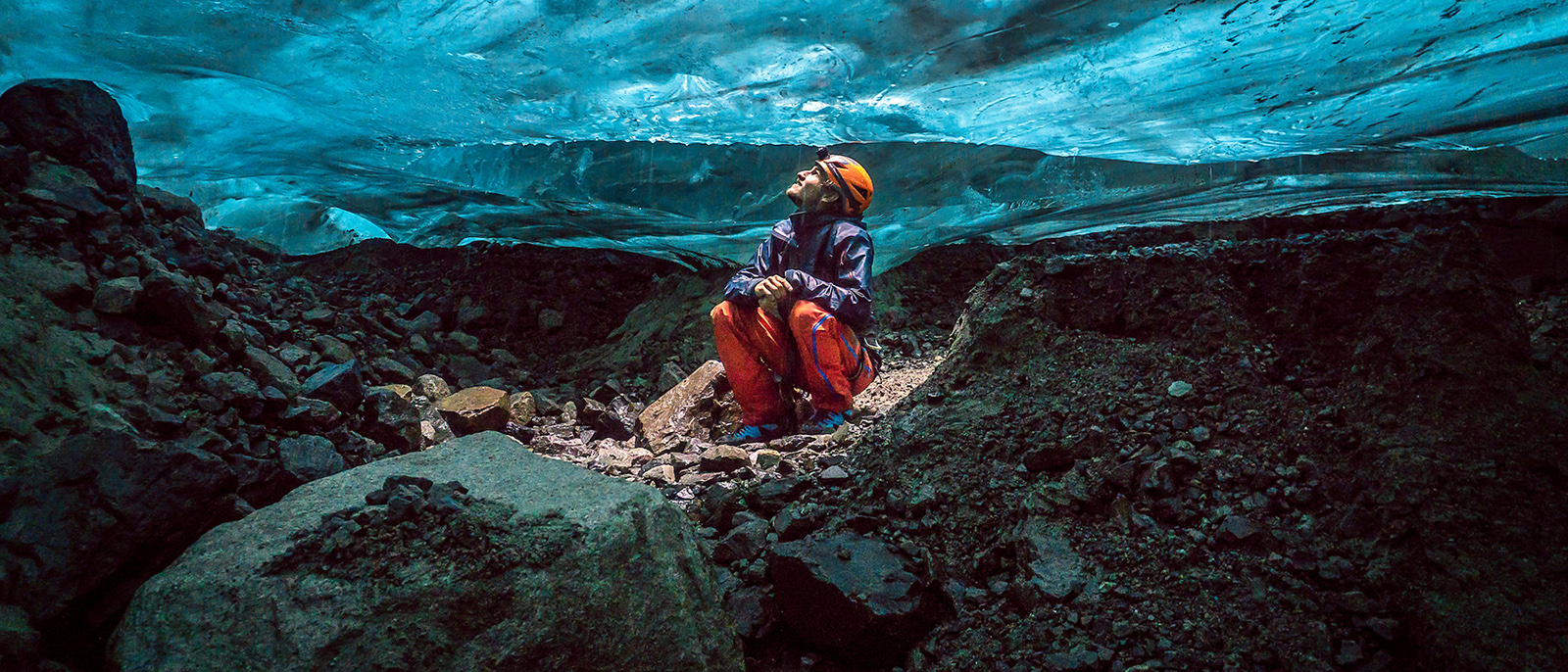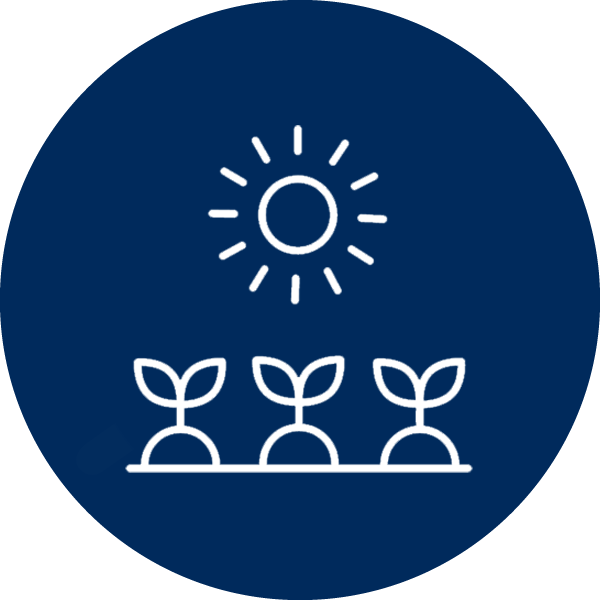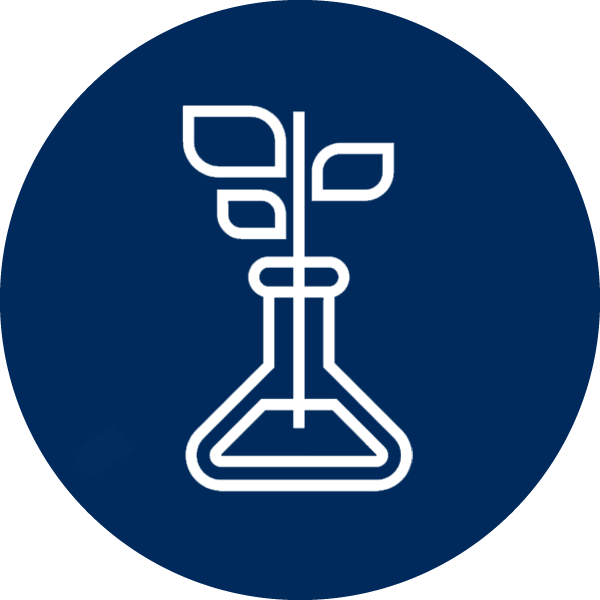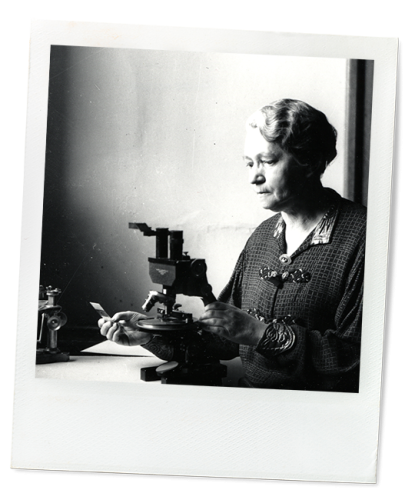Earth • Life • Health
We power silo-busting innovation for a better world.Students
Competitive grants awarded in fiscal year 2023
Public, private and industrial partners
Discover your tomorrow
Explore majors by how you can make a difference.
Lead climate action, conserve the environment and manage natural resources. Our students and alumni help steward our planet’s delicate ecosystems and promote sustainable practices. At UMaine, you can launch a lifetime of impact for your planet. Explore majors that will help you define Earth’s future.
Strive for local and global food security, sustainability and innovation. Our students advance food safety, develop innovative products, bolster nutrition access and steward natural resources. At UMaine, you can explore your passion and make an impact. Explore majors that will help you feed the world.
Pioneer bold, brilliant science inspired by life itself. Our students advance research that improves disease treatments, develops biodegradable alternatives to plastics and creates sustainable solutions to some of the most pressing problems of our time. Explore majors that will inspire your passion and help you make an impact.
Learn how to provide care in clinical, hospital, school and community settings as a social worker, speech-language pathologist, dietitian, doctor, nurse or nurse practitioner, physician assistant, optometrist, dentist or other healthcare provider. Explore majors that will inspire your passion and help you make an impact.
Forge a career immersed in nature. Our students and alumni work alongside wildlife and glaciers, amid forests and on coastlines as they fuse their passion for the outdoors with impactful careers. Explore majors that will inspire your passion and help you make an impact.
Watch virtual tours
Our world of discovery is right at your fingertips.Networked for impact
The people, places and hubs that power our research, education and service.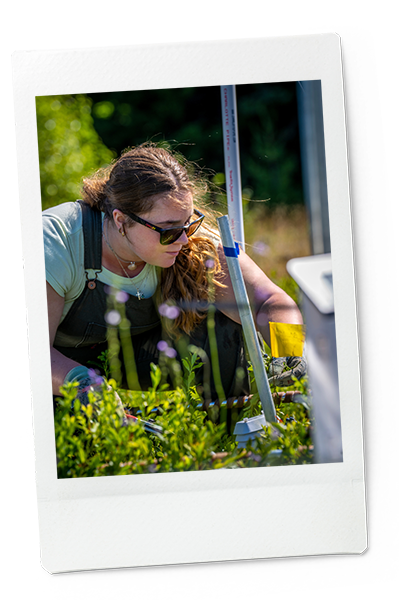
The Maine Agricultural and Forest Experiment Station empowers scientists to advance research inspired by Maine. For this support, our faculty must transfer research findings to Maine’s people, businesses, and communities who can benefit from this new knowledge.
Experiment Stations, which were created by the Hatch Act of 1887, are sustained by federal and state support. Experiment Station projects operate on a five-year cycle and support faculty salaries with federal funds, which frees up state resources to be used for operating, travel, personnel, and graduate research assistantship support. The peer-reviewed projects are powered by one of three funding sources.
Hatch Projects are 5-year research plans with measurable goals and impacts designed to contribute to the broad research mission of the USDA National Institute of Food and Agriculture.
Multi-state projects involve a team of investigators associated with several State Agricultural Experiment Stations working together to solve complex scientific problems of regional or national interest.
McIntire-Stennis projects are five-year research plans designed to advance forestry research for Maine. Topics include reforestation and management of forest lands for timber production, wildlife, recreation, and enhancing forest ecosystem services like protection from floods and erosion. Research also informs the response to fire, insects, diseases, or other destructive agents and pioneers novel wood and forest products.
- Aroostook Farm. A center for potato research in Presque Isle, Maine, Aroostook Farm is a research facility of the Maine Agricultural and Forest Experiment Station.
- Blueberry Hill Farm. A center for wild blueberry research in Jonesboro, Maine, Blueberry Hill Farm is a research facility of the Maine Agricultural and Forest Experiment Station.
- Highmoor Farm. A center for fruit and vegetable research in Monmouth, Maine, Highmoor Farm is a research facility of the Maine Agricultural and Forest Experiment Station.
- J. F. Witter Teaching and Research Center. The Witter Center includes two research farms near the UMaine campus: Witter Farm, a center for livestock research and animal science teaching, and Rogers Farm, a center for forage and crops research. The Witter Center is a research facility of the Maine Agricultural and Forest Experiment Station.
- Clapp Greenhouse and Lyle E. Littlefield Ornamentals Trial Garden. The greenhouses and trial garden are centers for horticultural research in Orono, Maine. These are research facilities of the Maine Agricultural and Forest Experiment Station.
- Penobscot Experimental Forest. The Penobscot Experimental Forest is a 4,200-acre forest located approximately 15 miles from the UMaine campus, which is used as a site for research on forest management. The Northern Research Station of the U. S. Forest Service also conducts long-term research on the property.
- Holt Research Forest. The Holt Research Forest is a 300-acre forest in Arrowsic, Maine. Research at the forest focuses on long-term changes in forest plant and animal populations and improving our understanding the effects of forest management.
- Dwight B. Demeritt Forest. The Dwight B. Demeritt forest includes more than 2,000 acres immediately adjacent to the UMaine campus. The forest is used for education, research, demonstration, and recreation.
The Analytical Laboratory and Maine Soil Testing Service. Provides analytical services to the public and research staff including analyses of soil, plant tissue, compost, manure, irrigation water, wood ash, fertilizers, organic residuals and other materials for nutrient content, organic matter, lead and other trace elements.
The Albert D. and Madelyn E. Conley Speech, Language and Hearing Center offers clinical education, research, and services in speech, language and hearing. The center offers on-site speech therapy, audiology and remote speech therapy telepractice services to the public overseen through the center’s Audiology, Speech-Language and Telepractice clinics.
The Darling Marine Center in Walpole, Maine, is the site of world-renowned marine research. It functions year-round to support UMaine faculty and students, along with visiting investigators from across the country and around the world.
The Semester by the Sea program offered each fall at the center provides marine science students an immersive opportunity to explore the Gulf of Maine and the life it sustains in experiential, field-oriented classes.
A state-of-the-art facility committed to helping food processors, entrepreneurs, farmers, researchers, and students in the food industry. The lab offers a variety of options for anyone seeking to expand product lines, create value-added foods, solve issues in current food products, and scale up recipes for commercial production.
Our faculty collaborate across disciplines to advance our land and sea grant university service mission. As a part of this effort, some of our faculty are significantly involved with the following University of Maine and college groups.
- Center on Aging. The mission of the Center on Aging is to promote and facilitate activities on aging in the areas of education, research and evaluation, and community service to maximize the quality of life of older citizens and their families in Maine and beyond.
- Initiative for One Health & the Environment. This National Science Foundation supported initiative builds on UMaine’s strengths in climate change and emerging issues in animal, plant, and human health.
- Maine Agricultural and Forest Experiment Station. The state’s center for research in agriculture, forestry, wood products, marine fisheries and aquaculture, wildlife, rural economic development, and tourism for Maine and its people.
- Maine Climate and Ag Network. The Maine Climate and Agriculture Network (MECAN) is a group of individuals organized through the University of Maine who recognize the importance of climate and weather impacts on agriculture. The network’s mission is to increase communication and identify challenges, opportunities, and potential solutions regarding climate and Maine agriculture.
- Maine Food and Agriculture Center. The Maine Food and Agriculture Center coordinates and seeks to expand the University of Maine System’s research and educational services for Maine food and agriculture.
- Lobster Institute. The Lobster Institute’s core mission is to sustain both the lobster resource and a viable lobster fishery through conservation, outreach, research and education.
- Maine Cooperative Fish and Wildlife Research Unit. The Cooperative Fish and Wildlife research unit strengthens professional education and training of fisheries and wildlife scientists; carries out research onaquatic, mammalian, and avian wildlife and their habitats; and disseminates research results.
- Bear Brook Watershed in Maine. This research program on adjacent forested stream watersheds in eastern Maine is recognized internationally for its contributions to understanding the effects of elevated nitrogen and sulfur deposition on forested watersheds.
Affiliated UMaine Centers, Institutes, & Programs
- Aquaculture Research Institute. The mission of the Aquaculture Research Institute is to serve Maine as an objective authority on aquaculture research with the goal of advancing a sustainable aquaculture future in Maine and beyond.
- Center for Tourism Research and Outreach. CenTRO is an effort by the University of Maine System to bring educational research and resources to the task of sustaining a healthy and growing tourism industry in Maine.
- Center for Cooperative Aquaculture Research. This center assists the aquaculture industry in developing new technologies for existing species and to diversify into new species.
- Center for Research on Sustainable Forests. CRSF work closely with University of Maine forest resources researchers, in academic fields spanning forestry, parks & recreation, soil science, resource economics, spatial engineering, and more.
- Climate Change Institute. CCI is an interdisciplinary research unit that conducts research and graduate education focused on variability of Earth’s climate, ecosystems, and other environmental systems and on the interaction between human beings and the natural world.
- Cooperative Forestry Research Unit:. CFRU conducts applied scientific research to provide Maine’s policymakers and forest landowners with the information necessary to ensure both sustainable forest management practices and effective public policy.
- Maine Center for Research in STEM Education (RiSE Center). The RiSE Center conducts research into education at all levels of instruction within the disciplines of science, technology, engineering and mathematics (the STEM disciplines). It also works to integrate education research into STEM teaching and learning through our many programs, projects, and partnerships.
- Maine Sea Grant. Maine Sea Grant is a state-federal partnership based at the University of Maine and sponsored by the National Oceanic and Atmospheric Administration and the state of Maine. Sea Grant is part of a network of 30 Sea Grant programs throughout the coastal and Great Lakes states. It supports marine and coastal scientific research and education.
- Maine’s Sustainability Solutions Initiative. Maine’s SSI is a partnership between the University of Maine, the University of Southern Maine, and other institutions of higher education. Its central focus is on producing knowledge and linking it to actions that meet human needs while preserving the planet’s life-support systems.
- The Margaret Chase Smith Policy Center. The Margaret Chase Smith Policy Center is a nonpartisan, independent research and public service unit of the University of Maine. The Center is dedicated to improving and promoting the quality of public dialogue about state, regional, and national policy issues through applied policy research and projects that seek innovative solutions to practical problems.
- Forest Bioproducts Research Institute. The Forest Bioproducts Institute strives to create and commercialize new bioproducts from forests while promoting forest health for a stable bioeconomy.
- Advanced Structures and Composites Center. The Advanced Structures and Composites Center is a state-of-the-art one-stop-shop for integrated composite materials and structural component development. It offers in-house capabilities for developing a composite product or structure from the conceptual stage through research, manufacturing of prototypes, comprehensive testing and evaluation, code approval and commercialization. The Advanced Structures and Composites Center’s research initiatives include cutting-edge materials and structures technology development for deepwater offshore wind, civil infrastructure, boat-building, residential and light commercial construction, defense, and homeland security.
- Senator George J. Mitchell Center for Sustainability Solutions. The Mitchell Center has a diverse interdisciplinary mission focusing on environmental research, graduate education, and outreach. The Mitchell Center works to provide Maine’s citizens and policymakers with unbiased and credible information that can enhance efforts to achieve healthy ecosystems, strong communities, and robust economies.
Honoring the legacy of UMaine’s original sustainability innovator, Dr. Edith Patch
Dr. Edith Patch was a visionary scientist who extolled the benefits of insects in an era when chemical pesticides were used indiscriminately. Her pioneering work with aphids at the University of Maine earned her the respect of her peers when few women worked outside the home, let alone in the sciences.
Patch’s former home, Braeside, has been vacant for decades, awaiting its next chapter just steps from the UMaine campus. The establishment of the Patch Innovation Station will restore the home and edify Patch’s legacy.

